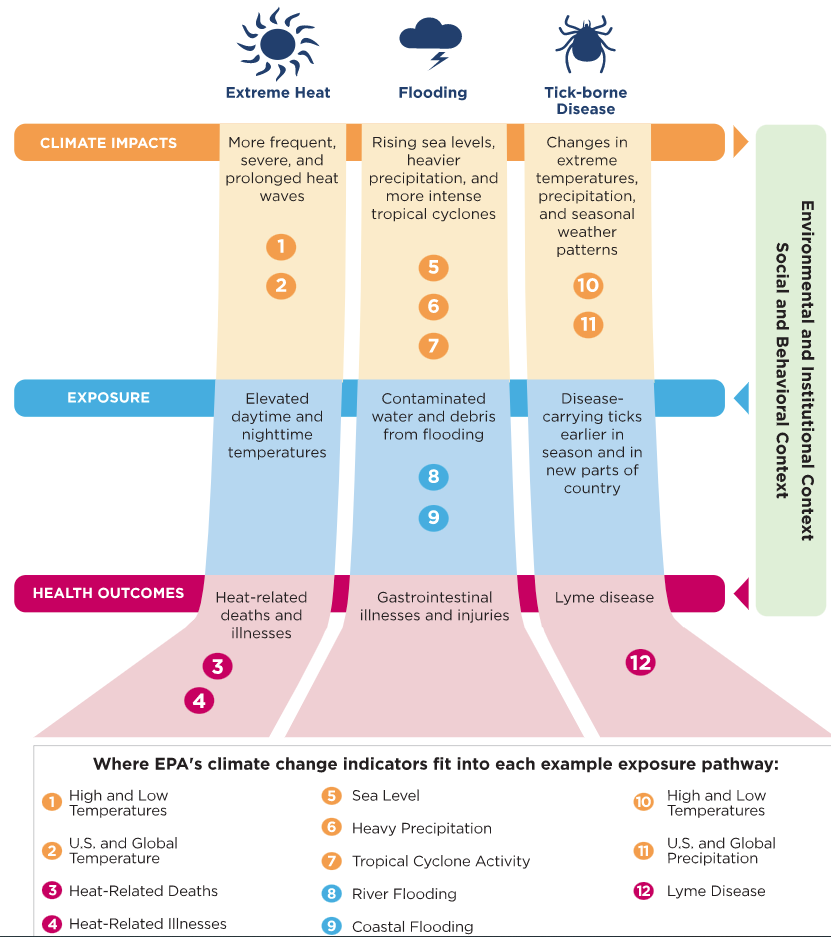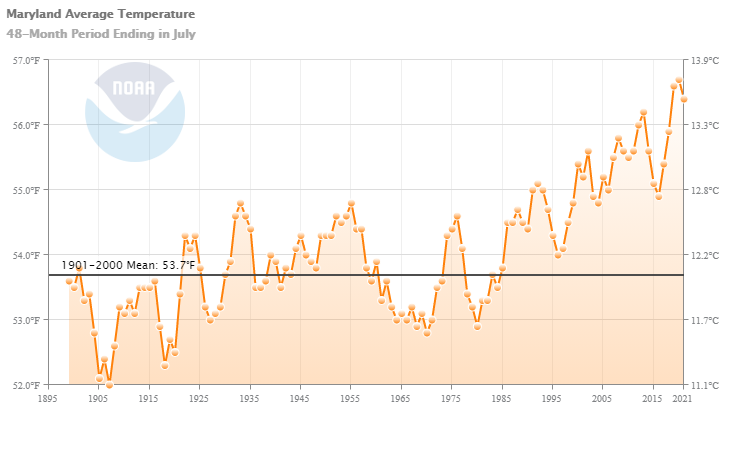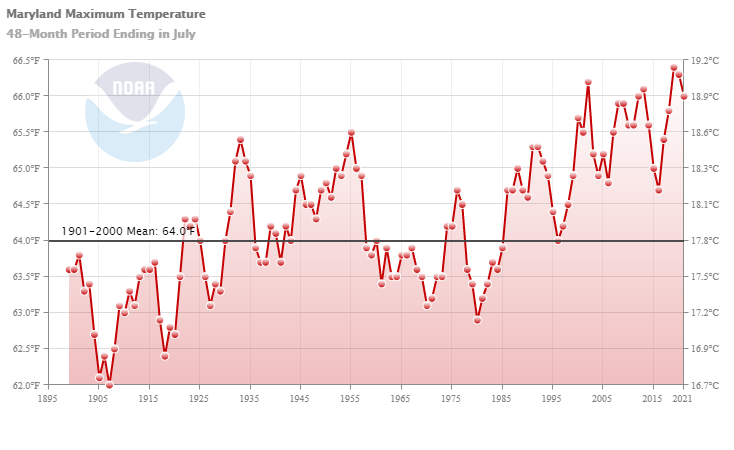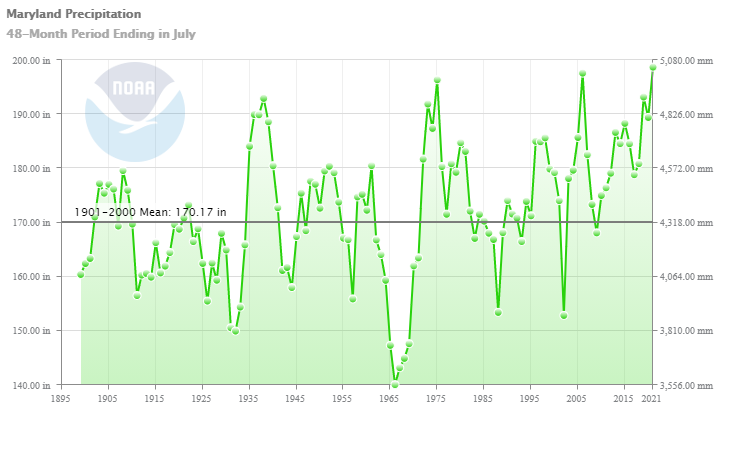Maryland Climate Change Health Adaptation Program
The Public Health Strategy for Climate Change is part of the State’s comprehensive strategy to reduce our vulnerability to a changing climate. The program achieves these goals by providing tools, resources, and technical assistance for citizens, communities, non-governmental organizations, schools, local governments, planners, and State agencies to help them think about health and use health data as they develop climate change plans
Environmental Public Health Climate Adaptation Tracker (EPHCAT)
EPHCAT serves as a clearinghouse for State and local climate change projects that include health, and highlights the efforts made to protect Marylanders from the health impacts of climate change. Click the map below to explore the Adaptation Tracker.

Climate and Health
The
2016 Climate and Health Profile Report provides evidence about how extreme events (climate effects) have impacted health, what vulnerabilities currently exist and where the health impacts are expected to go as climate change continues to impact Maryland.
Below is a diagram from the U.S. EPA demonstrating the connection between climate impacts and health outcomes. More information is available on the U.S. EPA's
website, and you can learn more about the health impacts of climate change
here.

Climate Data
The Maryland Department of Health’s
Environmental Public Health Tracking Portal (EPHT) provides a gateway to environmental, health and climate data resources. Users can create tables, maps or view a gallery of health topics in Maryland.
The
National Oceanic and Atmospheric Administration (NOAA) provides time series of climate data for Maryland.



Partners
Resources
The Maryland Public Health Strategy for Climate Change program has compiled a starter toolkit to provide you with fact sheets, reports, infographics, literature and presentations related to climate and health in Maryland. Click each of the headings below to explore additional resources.

